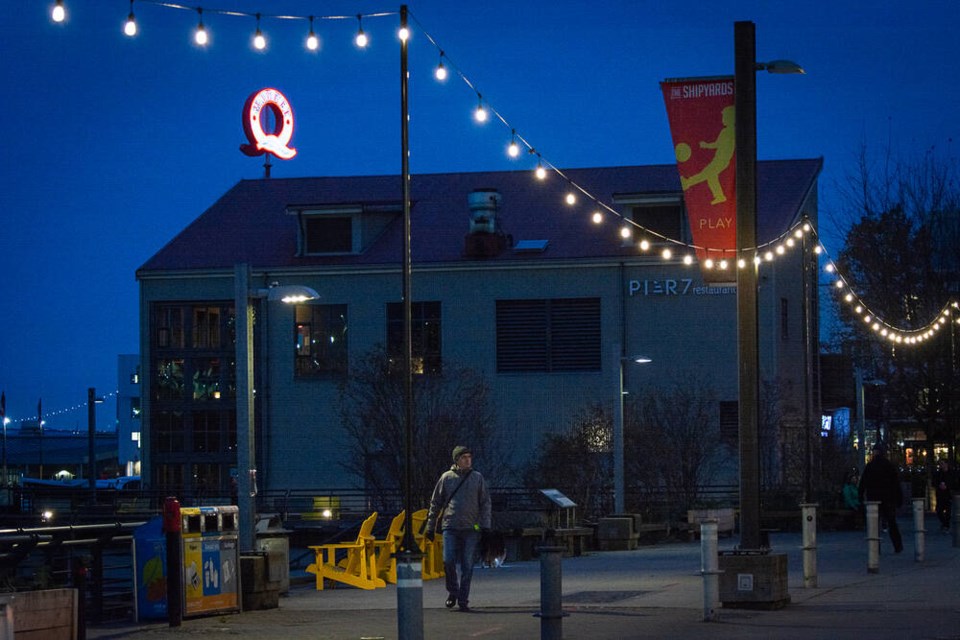While people visiting The Shipyards area over the next few months can expect noise and some detours, business in the popular waterfront destination should continue as usual.
On Jan. 2, construction began on a project to install upgraded water and electrical systems, which the City of North Vancouver says will allow the public space to host more environmentally friendly events. The new systems will provide power to food trucks and vendors, avoiding the use of generators, for example.
Divided into two phases, the total construction time is expected to take around three months, according to the city. The first phase, along the water in front of the Shipyard Commons area, has begun and is estimated to take four to five weeks. Phase 2, in the Wallace Mews area between the commons and the Pipe Shop building, is expected to take an additional four weeks.
As a contractor works to excavate to install electrical and water lines under the ground, foot traffic will be diverted along specific routes, and Spirit Trail access for cyclists will be diverted to Esplanade during the project. There will be a “sustained increase in noise,” the city said, with construction taking place between 7:30 a.m. and 6:30 p.m.
But nearby businesses will remain accessible as the work takes place, said city spokesperson Donna Powers.
“Access will be maintained for residents, emergency vehicles and business operations, including deliveries, at all times,” she said.
Operation of the outdoor Skate Plaza will not be affected, she added.
In February 2022, the provincial Ministry of Tourism, Arts, Culture and Sport announced $1 million in grant funding aimed at making The Shipyards more functional and appealing during otherwise quiet times of the year. North Vancouver City said it was pitching in an additional $695,000.
As was in the original scope, the current construction involves the electrical systems, as well as a drinking water station accessible to visitors and their pets. But the previously planned “vendor pods” won’t be included at this time.
“However, the upgrades will allow for future additions to the site,” Powers said. “The original scope of work was reduced to match the available budget and prioritize the following goals: event sustainability, increasing overall safety [and] reduction of ongoing operation and maintenance costs.”
The city is planning to re-use as much of the existing materials, including soil and the pavers, as possible.




